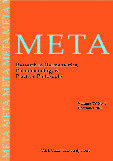Suicide: A Betrayal of African Communalist Personhood
Abstract
Incidence of suicide is a global phenomenon. Some individuals, worldwide, voluntarily terminate their lives every day. Even in Africa, where that used to be spared due to the peoples’ ancient consideration of the act as taboo, it is no longer so in contemporary time because the people are now increasingly challenged by heightening complexities of life. The challenges wield hopelessness, frustration, depression, and meaninglessness of life, leaving suicide to be contemplated as the only meaningful succor. But taking to suicide is problematic. Humanity stands to suffer extinction if it is summarily adopted as the ultimate solution to personal burdens. Complicating the problem further is the fact that the act, which is engaged from personal freewill, raises many questions. For instance, does freedom license individuals to choose suicide due to burdensome frustration? Do its contemplators consider its implications on themselves, their community, and the future of humanity? Can ancient African value system still sustain a moral check on the act among her contemporary peoples? This paper deploys analytic method of philosophical discourses to respond to the questions with respect to ancient African perception of life and suicide. It asserts that, in spite of complexities and challenges of life, contemporary Africans need to re-embrace the norms and values of the old. No individual has any moral justification to terminate their life, for that betrays his or her communalist personhood.
Keywords: suicide, African value system, communalist personhood, morality
[Full Article PDF]




